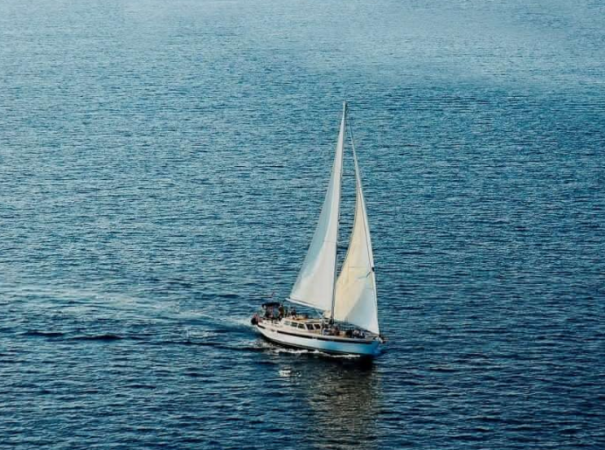
USA: On May 28, 2021, at 6:30 a.m., a small white and blue boat drifted into view near Belle Garden Beach on the Caribbean island of Tobago. Fish gathered, feeding on the barnacles that had developed below the surface as it rocked back and forth.
It appeared that no one was aboard from a distance. But as the fishermen got closer, they could smell death.
More than a dozen Black men's decomposing bodies were found there. Nobody was aware of their origins, what brought them there, the purpose of their presence on board, or how or why they perished. Nobody was aware of their names.
Also Read: London police issue a warning to the public not to approach a "violent" fugitive
What is now obvious but wasn't then is that 43 people were thought to have left a port city in Africa 135 days prior. They were attempting to get to the Canary Islands, which are off the northwest coast of Africa.
They never showed up. Instead, they arrived over here, across the Atlantic. Their families were looking for them halfway around the world.
The boat that made it to Tobago had its registration in Mauritania, a sizable and largely desert nation in northwest Africa that was nearly 4,800 kilometres away. The boat's style and color, which are typical of a Mauritanian "pirogue," and the evidence found on it suggested the dead were probably African migrants who were trying to reach Europe but got lost in the Atlantic.
At least seven boats from what appeared to be northwest Africa washed ashore in the Caribbean and in Brazil in 2021. They all had bodies in tow.
These "ghost boats" and probably many other boats that have disappeared are partly an unintended outcome of Europe's years-long efforts and massive financial investments to halt crossings on the Mediterranean Sea.
43 young men from Mauritania, Mali, Senegal, and possibly other West African countries boarded the boat, according to an investigation.
Between January 12 and 13, 2021, they left the port city of Nouadhibou, Mauritius, in the middle of the night. One of the bodies was identified through clothing and DNA testing, providing one family with closure and paving the way for other families to do the same.
Also Read: In progress evacuations as a tropical cyclone approaches Australia
Lance Biggart received a call from one of his fellow fishermen early on May 28, 2021. A peculiar boat had surfaced.
The 49-year-old native of Tobago arrived at his colleagues in his small but swift boat, the Big Thunder. He was joined at the scene by dozens of other fishermen who used their smartphones to record the pirogue. Those who were still fishing continued to catch shiny mahi-mahi that had gathered near the corpses, life revolving around death.
Biggart recalled being perplexed as to how the boat could have endured swells in the Atlantic.
"A wave came, and the boat rocked so, so badly," he explains.
A dead man was sitting by the bow. Moving away from the other dead in the boat's bottom, the fishermen and police questioned whether he was the last person to pass away.
The coast guard requested that Biggart and his associate tow the pirogue back to land. The boat was removed from the water by a tractor.
14 bodies, three skulls, and other large bones were painstakingly removed by men wearing white dungarees, who then placed the remains in 15 bags. For some victims, limbs or heads were missing. Some of the boat's components had been mummified by the sun, while others had been made rotten by the salt and water at the bottom.
Clothes, 1,000 West African CFA francs (less than $2), and a few euros were found on the boat. Additionally, the police discovered six corroded cellphones with SIM cards from Mauritania and Mali. The SIMs' contact lists were extracted by Tobago's Cyber Crime Unit.
Police in Trinidad and Tobago gave the contact information to the Ministry of Foreign Affairs, which in turn contacted the Mauritanian government on several occasions. They claimed they never received a response. The AP repeatedly emailed and phoned the Mauritania Foreign Ministry for comment, but they never returned the calls.
Also Read: ASEAN strongly condemns the deadly airstrike that occurred in Myanmar
Customers stopped purchasing Biggart's fish in the weeks that followed because they believed the deceased were the victims of some sort of sorcery. Some people made irrational assumptions, such as: Were they Ebola victims whose bodies had been thrown into the boat and cast off?
Biggart felt accountable because he was a mariner. "I have a friend who went out to sea and never came back."